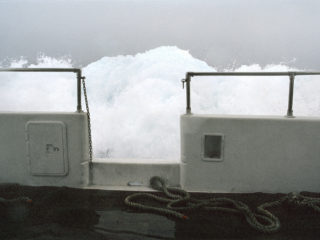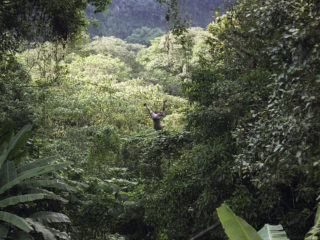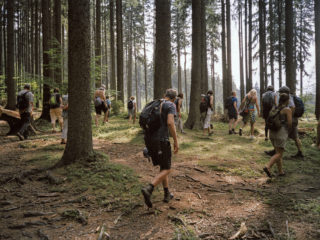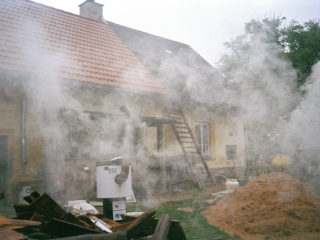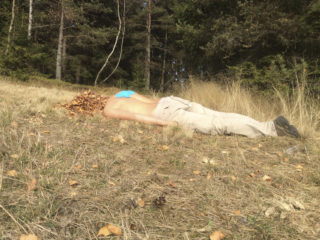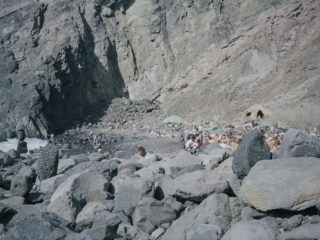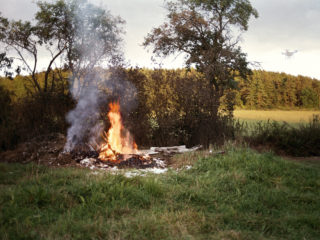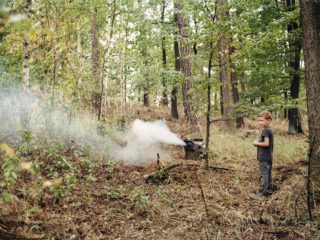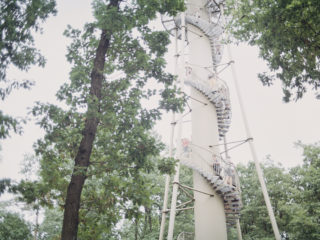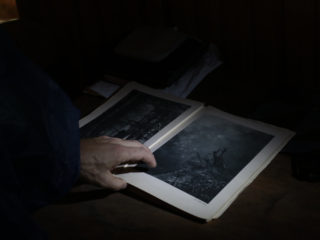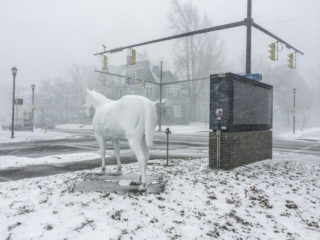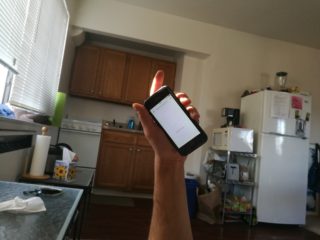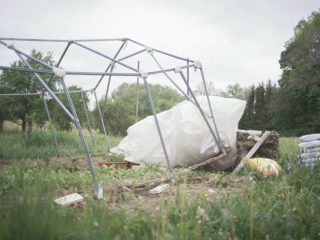We Have Never Been Earth (2019)
The We Have Never Been Earth series had several outputs: a book and an exhibition. These are based on the creative residency of visual culture theorist Andrea Průchová Hrůzová and photographer Tomáš Hrůza, which took place at the independent art and research institution Visual Studies Workshop in Rochester, USA. This institution has been publishing and collecting artist's books since 1969, which is why Tomáš Hrůza and Andrea Průchová Hrůzová's book is published under the respected Visual Studies Workshop Press label. The publication is composed of photographs by Tomáš Hrůza from different periods and of performative fragments of texts by Andrea Průchová Hrůzová, reminiscent of social media claims, quotes by thinkers or a glossary of abbreviations. The exhibition at Holešovická Šachta in 2019 was installed in a similar spirit, and the photographs and videos were accompanied by texts sprayed by graphic artist Jan Matoušek.
The name of the series paraphrases the title of the book We Have Never Been Modern by French sociologist Bruno Latour. In it, he points to the construct of modernity that anchored us in the Enlightenment's dualistic separation of nature and culture. We humans, however, are part of nature, one of the beings living in ecosystems often unrecognised by our senses. However, we disrupt this fragile symbiosis with destructive behaviour and actively anticipate the apocalypse. The publication and exhibition We Have Never Been Earth thematizes the phenomenon of apocalypse from several angles, the most striking of which are the images of natural disasters and the ways they are presented in the media and cinematography, the question of a sustainable relationship between humans and nature, the search for one's place on Earth through mysticism and secret teachings, and also the extinction of human imagination caused by the over-technicization and bureaucratization of contemporary society. Just as the book and the exhibition playfully change different perspectives through which the theme of the world's demise is viewed, the apocalypse also changes its impression, moving from catastrophism to a humorous Dadaist tone. The imagery of collapse and apocalypse are ingrained in our minds as something terrifying, uncontrollable; something we immediately recognise. However, Tomáš Hrůza's series shows that it can be otherwise - the apocalypse is something we experience every day.
